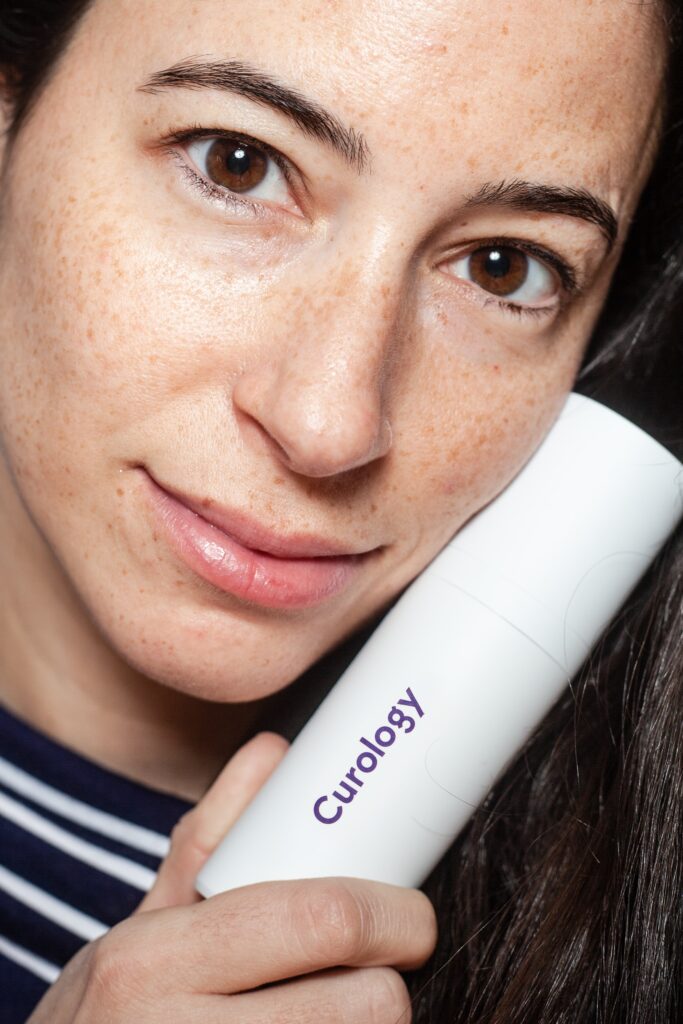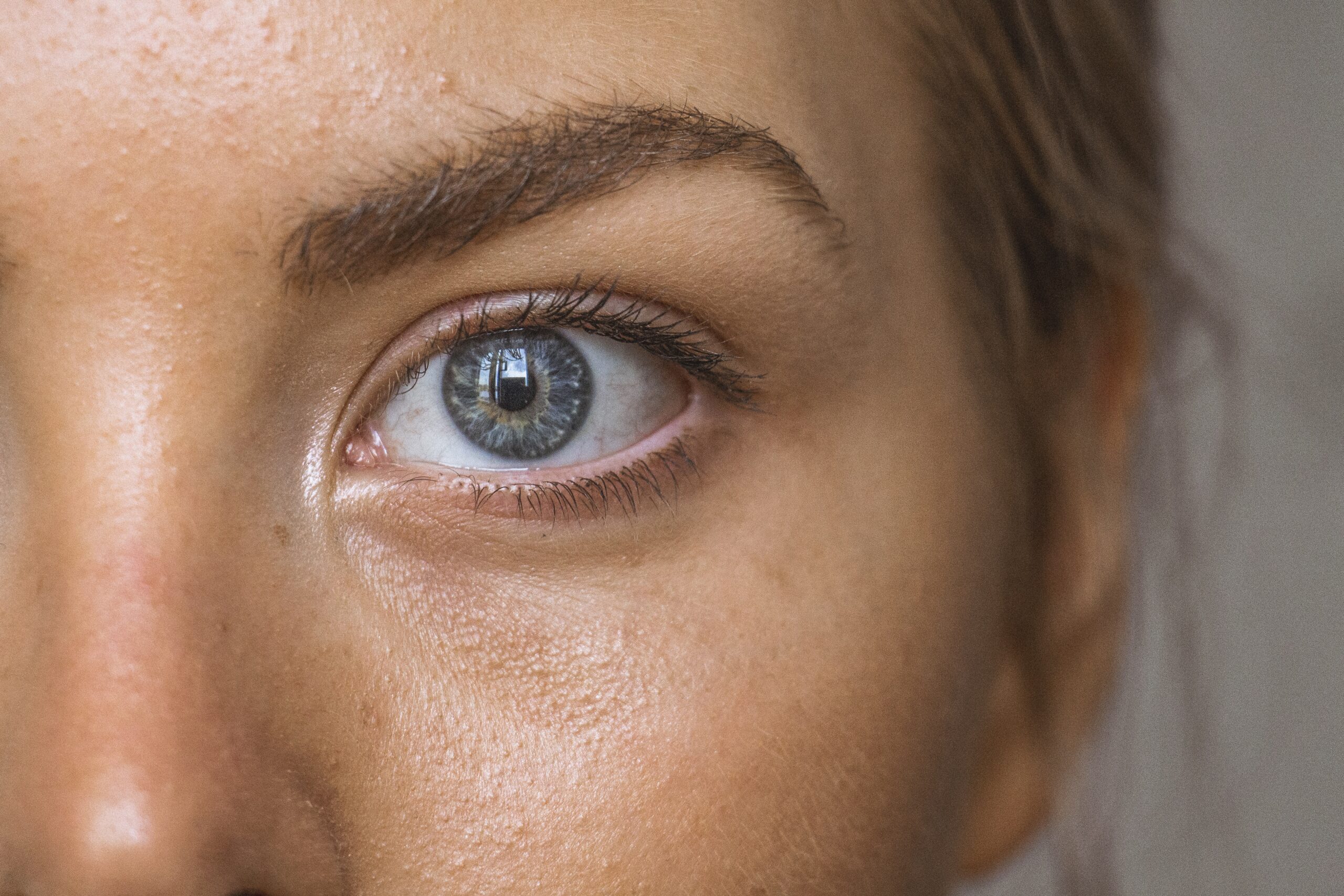Let us help you understand how menopause can have an impact on your skin. As women’s bodies go through this natural transition, hormonal changes occur that can bring about various changes in their skin. From dryness to increased wrinkles, menopause can certainly have an effect on the overall look and feel of your skin. Join us as we explore the fascinating relationship between menopause and the skin, uncovering the key factors at play and offering advice on how to keep your skin healthy and radiant during this stage of life.

Overview of Menopause
Menopause is a natural biological process that marks the end of a woman’s reproductive years. It is defined as the permanent cessation of menstruation and is confirmed after 12 consecutive months without a period. During menopause, the ovaries gradually reduce their production of the hormones estrogen and progesterone, leading to a variety of physical and emotional changes.
Age of Onset
The average age of onset for menopause is around 51, but it can occur anytime between the ages of 45 and 55. However, some women may experience menopause earlier or later, depending on various factors such as genetics, overall health, and lifestyle choices.
Hormonal Changes During Menopause
One of the primary effects of menopause is the significant decrease in estrogen levels in the body. Estrogen plays a crucial role in maintaining the health and vitality of the skin. It promotes collagen production, improves skin elasticity, and helps the skin retain moisture. As estrogen levels decline, women may experience hormonal imbalances that affect the skin’s appearance and health.
Effects of Menopause on Skin
Decreased Estrogen Levels
The decline in estrogen levels during menopause can lead to various skin issues. Estrogen helps promote blood flow to the skin, which contributes to a youthful and radiant complexion. With decreased estrogen, the skin may appear dull, dry, and less supple.
Collagen Loss
Collagen, a protein that provides structural support to the skin, is also significantly affected by menopause. Estrogen loss leads to a decrease in collagen production, causing the skin to become thinner and more prone to sagging and wrinkles.
Dry and Thinning Skin
As estrogen decreases, the skin’s ability to retain moisture diminishes. This can result in dry and flaky skin, as well as an overall thinning of the skin’s protective barrier. Dryness may cause itching, irritation, and discomfort.
Increased Skin Sensitivity
Menopause can make the skin more sensitive to external irritants, such as harsh weather conditions, certain skincare products, and even clothing. This heightened sensitivity may lead to redness, itching, and a stinging sensation.
Wrinkles and Fine Lines
The combination of collagen loss, reduced elasticity, and decreased moisture levels can contribute to the formation of wrinkles and fine lines. These visible signs of aging may appear more prominently during and after menopause.

Common Skin Issues During Menopause
Hot Flashes and Flushing
Hot flashes and flushing are common symptoms of menopause that can also affect the skin. The sudden surge of heat throughout the body can cause temporary redness and increased blood flow to the skin’s surface, leading to a flushed appearance.
Acne and Breakouts
Contrary to popular belief, menopause does not necessarily mean the end of acne. Hormonal fluctuations during this stage of life can trigger acne breakouts, particularly along the jawline and chin. These breakouts are often deep and painful, requiring specialized treatment.
Hyperpigmentation
Some women may experience an increase in pigmentation during menopause, leading to the appearance of dark spots and uneven skin tone. This hyperpigmentation is primarily attributed to hormonal changes and can be addressed with targeted skincare interventions.
Dull and Uneven Skin Tone
The loss of estrogen can result in a dull and lackluster complexion. The skin may appear less vibrant, with an uneven tone and texture. Skincare routines that focus on exfoliation and renewal can help restore a youthful glow.
Bone Loss and Its Impact on Skin
Role of Estrogen in Bone Health
Estrogen plays a vital role in maintaining bone density and preventing bone loss. During menopause, the declining estrogen levels can lead to a condition called osteoporosis, characterized by weakened and brittle bones.
Effect of Decreased Bone Density on Skin
The loss of bone density affects not only the bones but also the skin. Without adequate support from the underlying bone structure, the skin may become less firm and more prone to sagging.
Link Between Osteoporosis and Skin Aging
Studies have shown a potential association between osteoporosis and skin aging. Both conditions share common factors, such as hormonal changes and decreased collagen production. Further research is needed to fully understand the relationship between these two processes.

Treatment Options for Menopausal Skincare
Hormone Replacement Therapy
Hormone replacement therapy (HRT) involves taking medications that contain estrogen and progesterone to help alleviate menopausal symptoms, including those affecting the skin. HRT can help improve skin elasticity, hydration, and reduce wrinkles.
Topical Estrogen Creams
Topical estrogen creams can be applied directly to the skin to address localized menopausal skin symptoms. These creams can help improve moisture levels, elasticity, and overall skin health.
Moisturizers and Hydrating Products
Using moisturizers and hydrating products specifically formulated for menopausal skin can help alleviate dryness and maintain skin hydration. Look for products with ingredients like hyaluronic acid, ceramides, and glycerin.
Sunscreen and Sun Protection
Protecting the skin from harmful UV rays is crucial during menopause. Estrogen loss can increase the skin’s sensitivity to the sun, making it more prone to sun damage. Regular use of sunscreen with at least SPF 30 and seeking shade during peak sun hours is essential.
Cosmetic Procedures
For more severe skin concerns, cosmetic procedures such as laser treatments, chemical peels, and dermal fillers may be recommended. These procedures can help address deep wrinkles, hyperpigmentation, and loss of volume, providing a more youthful appearance.
Lifestyle Changes for Healthy Skin During Menopause
Healthy Diet and Hydration
Maintaining a well-balanced diet rich in fruits, vegetables, whole grains, and lean proteins can support overall skin health during menopause. Staying hydrated by consuming an adequate amount of water throughout the day is also essential for hydrated and plump skin.
Regular Exercise
Engaging in regular exercise helps improve blood circulation, which promotes healthy skin cell turnover and supports collagen production. Aim for a combination of cardiovascular exercise and strength training for optimal results.
Stress Management
Stress can exacerbate menopausal symptoms, including skin issues. Practicing stress-management techniques such as deep breathing exercises, meditation, or yoga can help reduce stress levels and promote a healthier complexion.
Adequate Sleep
Quality sleep is crucial for overall skin health and regeneration. Establishing a bedtime routine, ensuring a comfortable sleep environment, and aiming for 7-8 hours of sleep per night can contribute to a more rested and radiant appearance.
Avoidance of Smoking and Excessive Alcohol Consumption
Smoking and excessive alcohol consumption can negatively impact the skin’s health, accelerate aging, and worsen menopausal symptoms. Quitting smoking and limiting alcohol intake can significantly improve skin health during this stage of life.
Skincare Routine for Menopausal Skin
Gentle Cleansers and Mild Products
Opt for gentle cleansers that do not strip the skin of its natural oils. Look for products labeled as “mild” or “gentle” to avoid further irritation or dryness.
Moisturizing and Nourishing Creams
Choose moisturizers specifically formulated for menopausal skin that provide deep hydration and nourishment. Look for ingredients like hyaluronic acid, peptides, and ceramides to improve skin elasticity and smoothness.
Exfoliation and Skin Renewal
Incorporating exfoliation into your skincare routine can help slough off dead skin cells and promote cell turnover. Choose gentle exfoliants that won’t exacerbate skin sensitivity.
Serums and Anti-Aging Ingredients
Serums enriched with active anti-aging ingredients like antioxidants, retinol, and peptides can help combat the signs of aging in menopausal skin. These potent formulations can improve skin texture, reduce wrinkles, and enhance overall skin health.
SPF and Sun Protection
Sun protection should be a non-negotiable step in your skincare routine. Apply sunscreen with at least SPF 30 daily, even on cloudy days, and reapply every two hours when exposed to the sun.
Tips for Managing Skin Symptoms During Menopause
Avoidance of Hot Showers and Baths
Hot water can further dry out the skin, exacerbating its already compromised moisture barrier. Opt for lukewarm water instead of hot showers or baths.
Hydration from Within
In addition to topical moisturizers, staying hydrated from within by drinking enough water throughout the day can help improve skin hydration.
Avoidance of Harsh Skincare Products
Avoid using skincare products that contain harsh chemicals or ingredients that may further irritate menopausal skin. Opt for gentle formulations that soothe and nourish the skin.
Protection Against Extreme Weather Conditions
Extreme weather conditions, such as cold, dry air or hot and humid climates, can impact the skin’s health. Protect your skin by wearing appropriate clothing and using moisturizers or barrier creams to shield it from the elements.
Essential Nutrients for Skin Health During Menopause
Vitamin C
Vitamin C is a powerful antioxidant that helps protect the skin from free radical damage and promotes collagen production. Incorporate vitamin C-rich foods like citrus fruits, bell peppers, and leafy greens into your diet.
Vitamin E
Vitamin E acts as a moisturizer and helps protect the skin from oxidative stress. It can be found in foods such as almonds, sunflower seeds, and spinach.
Vitamin A
Vitamin A, in the form of retinoids, can help improve skin texture, reduce wrinkles, and promote a more even skin tone. Incorporate foods rich in beta-carotene, such as carrots, sweet potatoes, and kale.
Omega-3 Fatty Acids
Omega-3 fatty acids have anti-inflammatory properties and can help support overall skin health. Include foods like fatty fish (salmon, mackerel), walnuts, and flaxseeds in your diet.
Antioxidants
Incorporating a variety of antioxidant-rich fruits and vegetables into your diet can help fight free radicals and protect the skin from oxidative damage. Berries, tomatoes, and leafy greens are excellent sources of antioxidants.
When to Seek Professional Help
Persistent Skin Issues
If you have tried various home remedies and skincare interventions without seeing improvement in your skin issues, it may be time to seek professional help. A dermatologist can provide personalized advice and treatment options tailored to your specific needs.
Severe Symptoms
If you are experiencing severe skin symptoms that significantly affect your quality of life, it is important to consult with a healthcare professional. They can evaluate your condition and provide appropriate medical interventions to manage your symptoms.
Concerns About Skin Cancer
If you have concerns about skin cancer, whether it’s because of new or changing moles, persistent lesions, or a personal or family history of skin cancer, it is important to have a dermatologist evaluate your skin to rule out any concerning lesions or provide early detection and treatment if needed.
Emotional and Psychological Impact on Well-being
Menopausal skin changes can have a significant emotional and psychological impact on a person’s well-being. If you are experiencing distress or a decrease in your overall quality of life due to your skin issues, seeking professional help, such as therapy or counseling, can be beneficial in managing these emotional aspects.
In conclusion, menopause brings about various changes in the skin due to hormonal shifts and decreased levels of estrogen. These changes can manifest as dryness, thinning skin, wrinkles, and other concerns. However, with the right skincare routine, lifestyle adjustments, and possibly medical interventions, women can effectively manage and improve their menopausal skin symptoms, promoting a healthy and radiant complexion throughout this transitional phase of life.